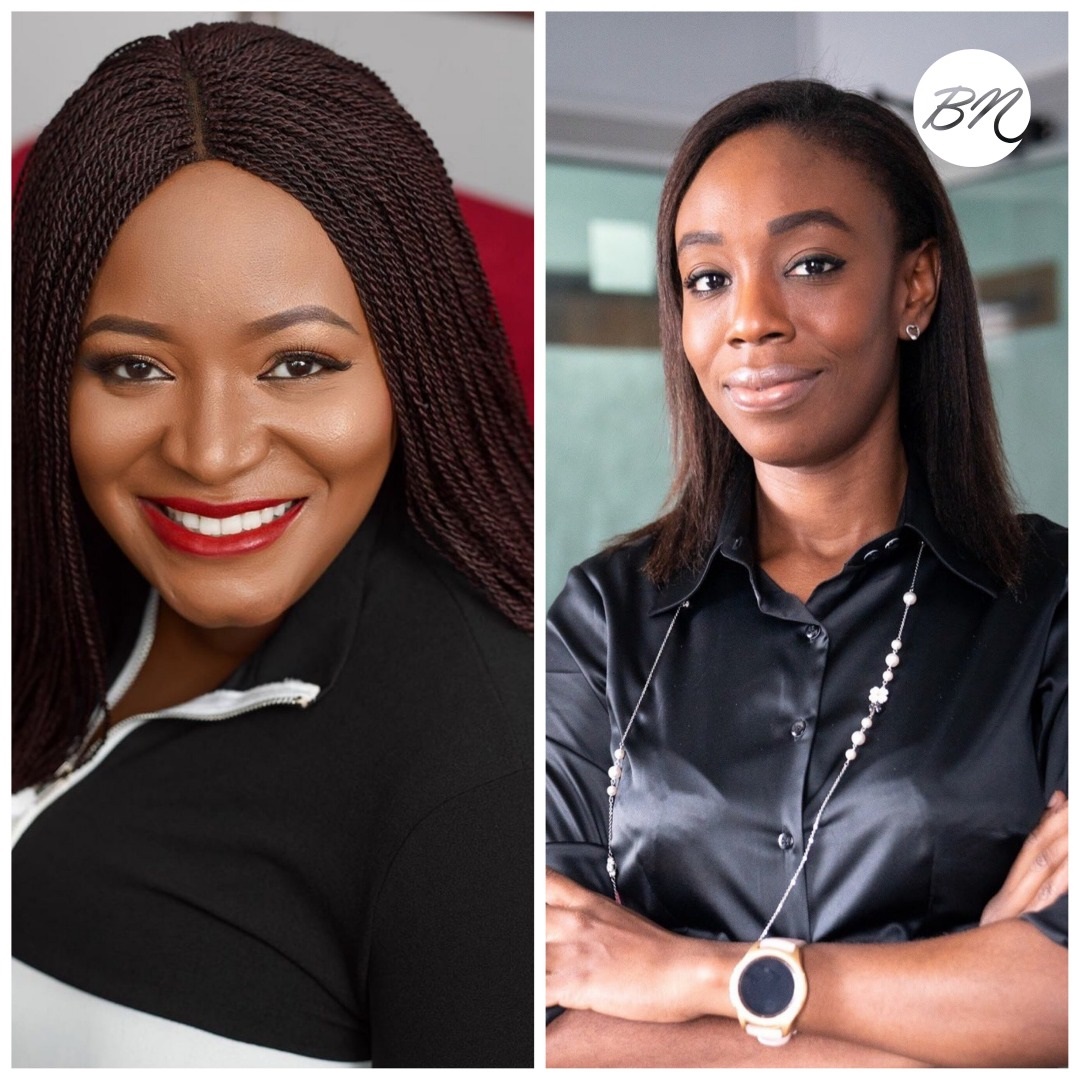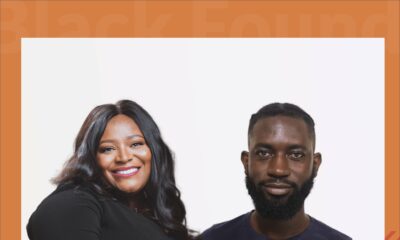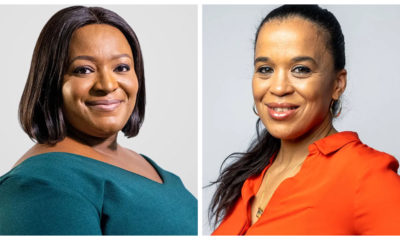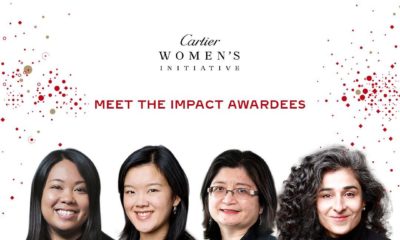Career
Funkola Odeleye of DIYLaw & Temie Giwa-Tubosun of LifeBank Join the Class of Inspiring Finalists of Cartier Women’s Initiative 2020
The Cartier Women’s Initiative is an international business programme created in 2006 by Cartier in partnership with INSEAD Business School to identify, support and encourage businesses led by women entrepreneurs. Twenty-one women entrepreneurs, three finalists per region (Latin America & the Caribbean, North America, Europe, Sub-Saharan Africa, Middle East & North Africa, East Asia, South Asia & Oceania) are awarded every year.
 Funkola Odeleye, Temie Giwa-Tubosun and 19 other women have been selected as finalists for the 2020 Cartier Women’s Initiative.
Funkola Odeleye, Temie Giwa-Tubosun and 19 other women have been selected as finalists for the 2020 Cartier Women’s Initiative.
The Cartier Women’s Initiative is an international business programme created in 2006 by Cartier in partnership with INSEAD Business School to identify, support and encourage businesses led by women entrepreneurs. Twenty-one women entrepreneurs, three finalists per region (Latin America & the Caribbean, North America, Europe, Sub-Saharan Africa, Middle East & North Africa, East Asia, South Asia & Oceania) are awarded every year.
For the first round, the jury selects 21 finalists, the top three projects from each region on the basis of their application. They then receive coaching from experienced business experts to move on to the next round.
In the second round, the finalists are then invited to the final round of the competition which includes submitting a business plan and presenting their projects in front of the Jury during the Cartier Awards Week. Based on the quality of the plan and the persuasiveness of the verbal presentation, one laureate from each of the 7 regions will be selected.
The laureate from each region will receive $100,000, while the 14 finalists (the two runners-up from each region) will receive $30,000 in prize money. The 7 laureates will be announced in June 2020. Two Nigerians and one Benenois have been listed as 2020 Fellows of this prestigious initiative.
Funkola Odeleye is the founder of DIYLaw. She empowers entrepreneurs in Nigeria by providing automated online access to affordable legal services and resources.
Due to the high rate of unemployment in Nigeria, entrepreneurship is often the only viable solution. However, this path is fraught with challenges. Legally registering a business may involve interactions with as many as 12 agencies and organizations, including accounting firms, banks, and lawyers. The process can be particularly difficult for small businesses without legal or business staff. Funkola is bridging this gap with DIYLaw.
Funkola says: “It’s a waste of people’s youth when they can’t find jobs. We want to reduce the number of unemployed.”
Temie Giwa-Tubosun is the Founder of LifeBank, a medical distribution company that uses data and technology to discover and deliver essential medical products to hospitals in Nigeria.
Blood shortages in Nigeria contribute to the deaths of 152,000 anemic children and 37,000 pregnant women each year and are responsible for innumerable complications for women immediately after childbirth. With LifeBank, Temie helps hospitals find critical supplies and delivers them in the right condition and on time, around the clock.
Other finalists are:
- Vena Arielle Ahouansou – Republic of Benin
After a patient, having suffered from suffered a hemorrhage – a relatively rare but potentially fatal complication that urgently required a blood transfusion, Vena knew she had to ‘do something’. She founded Kea in order to help doctors save more lives through a platform that interconnects health facilities and provides access to critical health information. Vèna conceived Kea’s platform as a solution, not only for women giving birth but for patients entering the hospital after an accident or illness. “A matter of a few minutes can cost a life,” she says. The company aims to connect all health systems in the Republic of Benin through a single database so any doctor in any hospital can immediately access life-saving health data.
- Joanne Howarth – Australia
In 2015, Joanne started Planet Protector Packaging to provide a sustainable alternative to polystyrene using waste wool. When people transition away from polystyrene, they need a replacement product that delivers on the food safety and the temperature profile that they need to achieve. The answer involved adapting a European packaging solution to extreme Australian temperatures: turning discarded, non-textile grade wool into a sustainable insulation material. That is exactly what Joanne did with Planet Protector Packaging.
- Lisa King – New Zealand
Founded by Lisa, Eat My Lunch‘s mission is to ensure no child goes to school hungry, using a buy-one-give-one model to give lunches to children in need. Twenty-seven percent of children in New Zealand, a country of 4.5 million, live in poverty. One in five suffers from food insecurity. One night she was chatting with a friend about the issue and happened to glance at her feet. Lisa says: “I was wearing a pair of TOMS shoes. TOMS, founded in 2006, popularized the buy-one-give-one business model by giving away a pair of shoes to someone in need for every pair sold. I said, ‘this is such a great model that works really well with shoes, why don’t we do it for lunches?'” The idea for Eat My Lunch was born.
- Jenna Leo – Australia
Home Care Heroes uses technology to connect passionate community members with vulnerable people to reduce social isolation and improve independence through affordable companionship services. This is done by matching community members together for companionship.
- Rihab Hasanain – Saudi Arabia
Rihab founded Blooming Bs, a social enterprise devoted to providing school children with healthy and delicious food to combat childhood obesity in Saudi Arabia and beyond. A third of Saudi children—more than a million—are obese or overweight. They are part of a global epidemic, with the childhood obesity rate increasing and the number of obese children worldwide predicted to reach 206 million in 2025. Blooming Bs solves works as a catering partner with schools to deliver healthy, nutritious, and delicious food.
- Rasha Rady – Egypt
Rasha, alongside her friend, Doaa, founded CHEFAA. CHEFAA provides Egyptian pharmacies with an AI-powered system that helps patients manage their pharmacy needs. Patients enter prescriptions on a GPS-enabled app that locates the nearest pharmacy. Chronically ill patients in Egypt fill two million prescriptions each month. But in Egypt, pharmacy systems are still primitive. Rasha is solving this problem.
- Nadia Gamal El Din – Egypt
Nadia is the founder of Rahet Bally, an all-inclusive platform to support Egyptian mothers financially, physically, emotionally, and intellectually, both online and in person. New mothers need a tremendous amount of support as they heal from giving birth and learn to care for a new baby. This intense physical, psychological, emotional, and mental transformation comes with urgent questions, and the isolation of new motherhood can have serious consequences. Nadia is solving this problem through Rahet Bally by creating a place where new moms can actually breathe again.
- Kelly Nguyen – United States
Kelly founded IDLogiq. IDLogiq Empowers patients to proactively verify, authenticate, and manage medications with a single mobile scan using strong cryptographic identity authentication, real-time tracking, and intelligent medication management.
- Sarah Tuneberg – United States
Since childhood, Sarah has been drawn to alleviating the suffering of those at risk. She founded Geospiza – a company that Analyzes and visualizes risk for climate-exposed organizations, enabling decision-making in the face of deep uncertainty – to mitigate, and in many cases, prevent the human tragedies they cause. “The heart of our business is meeting the needs of those people who are most vulnerable,” Sarah says.
- Stephanie Benedetto – United States
Stephanie founded Queen of Raw, a marketplace to buy and sell unused textiles, keeping them out of landfills and turning pollution into profit. Like an Airbnb for fabric, the company’s online marketplace connects factories, mills, retailers, and brands with buyers. The marketplace lets sellers turn material – that otherwise would have been incinerated – into profit while buyers find the exact fabric they need, from English tweed to Italian jacquard.
- Nini Mao – China
In 2015, Nini founded Very FQ after she discovered that, in China, people are ashamed to talk about money. Very FQ Educational Technology Corp. is a financial literacy education company. Very FQ provides financial literacy education to Chinese families through programs for parents and children using a culturally appropriate curriculum.
- Weini Qiu – China
After her father died of lung cancer, Weini felt she needed to “do something for him”. She founded Haalthy to address the data analysis gap for a variety of cancers, beginning with lung cancer. The company’s two-part solution serves both patients and pharmaceutical companies. AI-powered social media tools help cancer patients understand and manage their disease and discover optimal treatments, with the ultimate aim of lowering treatment cost.
- Charlotte Wang – China
Charlotte founded EQuota, an energy optimization company that combines artificial intelligence and big data to deliver energy efficiency solutions. For large energy consumers, EQuota gathers data from existing monitoring systems such as smart meters, then uses AI methods to analyze energy use patterns and identify opportunities to increase efficiency. Customers can interact with the data and extract insights using an online dashboard. Its technology is non-intrusive, so customers don’t have to add new hardware or switch systems.
- Lisseth Cordero – Mexico
Lisseth founded Ecolana, A digital platform and consulting firm that connects consumers, brands, and informal collection and recycling centers to help reduce waste. Lisseth started Ecolana in 2016 with Alejandra Valdez and Mariana Soto to answer the question “where can I recycle this?” They created the first recycling map for Mexican consumers by compiling a database of formal and informal collection centers. “We make recycling practical and easy,” Lisseth says.
- Adriana Luna – Mexico
Adriana is the founder of Tierra de Monte, a company that creates agricultural products that renew biodiversity and soil fertility, fortifies and protects crops, and empowers the farmers who use them. Using region-specific bacteria and fungi, the company creates soil inputs and pest control products that are easy to use, cheap, effective, and totally safe. Unlike chemical fertilizers and pesticides, the company’s products enhance the soil’s long-term biological productivity.
- Adriana Mata – Chile
Without data, businesses allocate resources to failing initiatives or are blind to necessary course corrections. Adriana started her company, Cuantix, in July of 2018 to make it easier, even painless, for businesses to measure their social impact.
- Sofie Blakstad – Denmark
Sofie’s 25-plus years of experience with international financial institutions gave her insight into the barriers that microenterprises face when seeking capital. She incorporated Hiveonline in 2016 to address these barriers. The company began by serving Danish businesses, but Sofie knew there was a greater need in Africa and soon pivoted to focus on Niger. Her background in programming, technology infrastructure, and banking enabled her to see how blockchain technology could be used to validate actions that build trust.
- Anna-Sophie Hartvigsen – Denmark
Female Invest, founded by Anna-Sophie, seeks to close the gender investment gap by educating women on investing and personal finances. In 2018, women between 70 and 79 retired with a fortune that was 35 percent smaller than men’s. More than 60 percent of women would rather discuss their own deaths than talk about money, according to a 2017 study by Merrill Lynch, which also found that only about half of women say they feel confident managing investments.
Female Invest, provides just such a space. Female Invest aims to change the investing equation for women through in-person and online educational events.
- Dora Palfi – Sweden
Dora created imagiLabs, a community and mobile-first tools that make programming fun and relevant for teenage girls. When Dora Palfi worked at her first job as a developer, she was referred to simply as “the girl on the seventh floor”—because there were no other women developers. The scarcity of women in tech means that girls who would be interested in technology-related fields are deterred from entering the industry by the gender gap. “Teenage girls like to use their phones,” Dora says. “And they like to express themselves and get creative.” The product is a way to reach millions of girls and get them interested in programming.
Cartier Women’s Initiative has been turning its spotlight on women who are making waves in their field of work by providing them with financial, social and human capital support. This programme is helping women to grow their business, build their leadership skills as well as maximise their full potential.
In 2013, Nigeria’s Bilikiss Adebiyi of WeCyclers was selected as the Cartier Women’s Initiative laureate for Sub-Saharan Africa.
Congratulations to the 2020 Fellows.






















